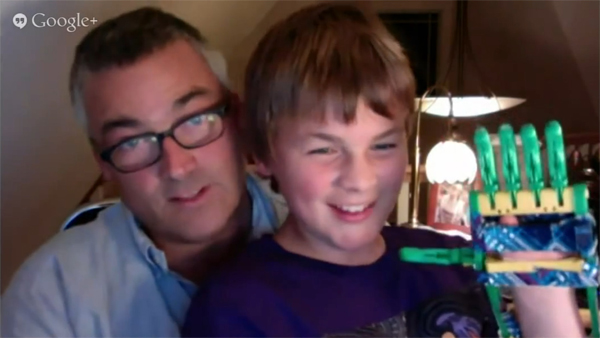
24 Jul Will 3-D Printing Revolutionize Medicine?
Here are several excerpts from an article by Sonia Collins, an Independent Journalist Specializing in Health and Science, about how 3-D printing has begun to revolutionize medicine. If nothing else, be sure to watch the very informative video at the beginning of the article. It’s truly amazing how 3-D printing will change our world.
Sydney Kendall lost her right arm below the elbow in a boating accident when she was 6 years old. Now 13, Sydney has used several prosthetic arms. But none is as practical — nor as cool, she’d argue — as her pink, plastic, 3-D-printed robotic arm.
The arm was custom-designed for her this spring, in pink at her request, by engineering students at Washington University in St. Louis through a partnership with Shriners Hospital. They printed it while Sydney and her parents watched.
“It took about 7 minutes to do each finger,” says Sydney’s mother, Beth Kendall. “We were all blown away.”
When Sydney wore her new arm to her school outside St. Louis, her classmates were blown away, too. “They were like, ‘Sydney, you’re so cool! You’re going to be famous!’” Sydney recalls.
The robotic arm, with its opposable thumb, helps Sydney grip a baseball, maneuver a mouse, and pick up a paper coffee cup.
The cost? About $200. Traditional robotic limbs can run $50,000 to $70,000, and they need to be replaced as children grow.
“Kids don’t usually get to have robotic arms because they are so expensive,” Beth Kendall says.
Robotic arms like Sydney’s are just one example of how 3-D printing is ushering in a new era in personalized medicine.
From prosthetics to teeth to heart valves, it’s bringing made-to-order, custom solutions into operating rooms and doctors’ offices. Experts say dozens of hospitals are experimenting with 3-D printers now, while researchers work on more futuristic applications of the technology: printing human tissue and organs. To foster even more research, the National Institutes of Health in June launched a 3-D Print Exchange that allows users to share and download files.
“3-D printing is a potential game-changer for medical research,” said NIH Director Francis Collins, MD, PhD, in announcing the exchange. “At NIH, we have seen an incredible return on investment; pennies’ worth of plastic have helped investigators address important scientific questions while saving time and money.”



Sorry, the comment form is closed at this time.